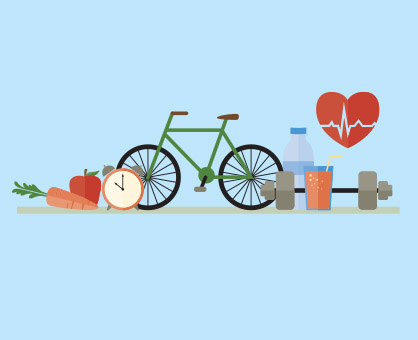Resolutions for 2020
find yourself, don’t make yourself:
The story goes that people who eat healthily, exercise regularly, and generally take care of themselves have willpower and discipline. The people who eat junk food, watch a lot of TV, and have other self-sabotaging behaviors are lazy and unmotivated. In this exaggeration, there’s a clear demarcation between high-performers and the apathetic, winners and losers.
A better theory? Most people who eat well and exercise do it because they LIKE to. They feel good eating salad (and might even find it tasty). Exercise helps them de-stress, connect with themselves physically and be more confident. They feel bad when they don’t eat well and exercise.
People who don’t? They may not have identified what they like about certain positive behaviors yet to find the right motivation. They may have internalized the idea that they’re “lazy and unmotivated,” so what’s the point? Meanwhile, they’re likely raising children, getting promotions, and doing countless other things to disprove their so-called laziness.
The idea of motivation and will-power is legendary in setting New Year’s resolutions. But maybe the better issues are self-knowledge and awareness, enjoyment and customizing.
Brendon Burchard, famous life coach and author of High Performance Habits, identifies “Clarity” as the first habit of successful people. He writes, “Our research shows that compared with their peers, high performers have more clarity on who they are, what they want, how to get it, and what they find meaningful and fulfilling. [They also have] a great ability to focus on the future…They consistently thought about who they wanted to be and how to get there.”
Rather than simply evaluating their quest for new habits on New Year’s Eve, high performers think about how they want to improve regularly — they remember that every day is tomorrow’s eve. They also report more life happiness and satisfaction than their peers.
“Consider resolutions that might be daily practices rather than results you achieve over several months.”
So, maybe it’s time to ask some new questions, instead of “How can I make myself motivated come January 1st?”
Here are my top questions to get at your best resolutions, the kind that help you know yourself, starting with values rather than basic actions:
What kind of person do I want to be in 2020?
How do I want to treat people?
How can I appreciate life more in 2020?
What makes me happy, and how can I do that more this year?
How do I want to feel in 2020? Can I imagine that feeling? (And only after answering that question might you ask yourself things such as what do I need to do to get that feeling?)
Consider resolutions that might be daily practices rather than results you achieve over several months. These frequently get at your attitude in the moment, rather than a certain result over months. Some of my favorites offer a particular focus for the day that can inspire larger change over time.
For example, if you’ve decided you want to feel more thankful and productive in 2020, then you might spend one minute each morning identifying the most important thing you could get done that day to feel productive and setting your phone to message you every hour reminding you to do that task.
At night, you might spend one minute identifying what you’re grateful for about the day, letting the object of your gratitude sit clearly in your head and your heart while you feel deeply appreciative. A minute here, a minute there — these moments of focus can help intentionally develop your goal to feel a certain way.
Positive feelings are game changers and don’t necessarily involve changing anything about your life, other than perspective. But they often require intentionality. No one is grateful for the beautiful sunset in front of them if they’re not looking up at the sky. A moment when your only job is to observe and focus can be life-saving. As these moments accumulate, you’re making attitudinal change, the keystone to feeling happier, which is one of the best resolutions of all.
And a great benefit of happiness? It’s often the motivation all of us need to get off our lazy butts, eat well and exercise.
Brought to you by Beacon Health & Fitness and Bridget Hardy, a BHF wellness coach, personal trainer and group exercise instructor.







